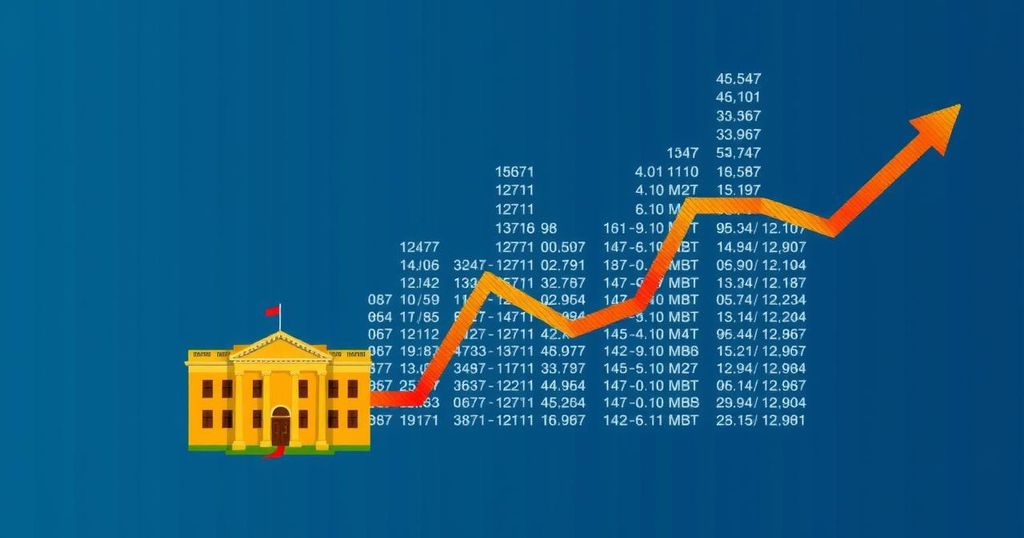The Economy’s Role in Shaping Election Dynamics
As Election Day approaches, the American economy appears robust with a G.D.P. growth of 2.8 percent in the third quarter; however, many voters continue to deem the economy only ‘fair’ due to lingering inflation. Economic concerns remain the top priority for voters, as indicated by recent polls showing Donald Trump leading Vice President Kamala Harris in economic trust. Trump’s tendency to pivot from economic discourse to immigration may impact his campaign strategy.
As the election approaches, the American economy is showing signs of strength, with a recent report indicating a 2.8 percent annual growth rate in Gross Domestic Product (G.D.P.) for the third quarter. Despite this positive news, public sentiment remains mixed, as many voters perceive the economy as merely “fair” or “poor,” influenced by the lasting effects of high inflation experienced in recent years. With less than a week remaining before Election Day, these economic indicators may influence voter sentiment and decisions. According to the latest polls from The Times, the economy has consistently emerged as the foremost issue for voters, reflecting their concerns over their financial well-being. In recent surveys, former President Donald Trump has maintained a perceived advantage over Vice President Kamala Harris in handling economic matters, although Harris has notably closed the gap in voter confidence. “When Trump taps into voters’ concerns over the economy, it can be very effective,” stated Michael Gold, a colleague from The Times who covers Trump’s campaign. However, Trump’s strategic focus may hinder his effectiveness; despite his advisers recommending an emphasis on economic discourse, he has instead prioritized discussions on immigration, which he attributes to his success in the 2016 election. In related political news, the Supreme Court has permitted Virginia to remove around 1,600 potentially ineligible voters, while Kamala Harris seeks to distance herself from President Joe Biden’s controversial remarks regarding Trump supporters. Furthermore, the battleground state of Arizona remains competitive, with Republicans leaning towards immigration issues while Democrats focus on abortion rights. Also, notable endorsements include Arnold Schwarzenegger supporting Harris, highlighting the complex political landscape as the election commences.
The current economic landscape in the United States is critical, particularly as the nation approaches the 2024 elections. Voter perceptions of the economy are significant, given that economic performance has been a decisive factor in elections. Many Americans still relate their economic conditions to the impacts of the pandemic and subsequent inflation, which has shaped their expectations and experiences. Understanding how voters view the economy, and the candidates’ positions on economic issues, can provide insights into their voting behaviors in the upcoming elections.
In summary, while the American economy demonstrates signs of recovery, public perception remains cautious, with a majority of voters expressing dissatisfaction. This disconnect may influence voter behavior as they prepare to elect their next leader. As candidates navigate their messaging, the focus on the economy could become pivotal in determining the outcomes of the races. Voter sentiment, shaped by both economic indicators and candidate strategies, will be crucial in the upcoming elections.
Original Source: www.nytimes.com




Post Comment